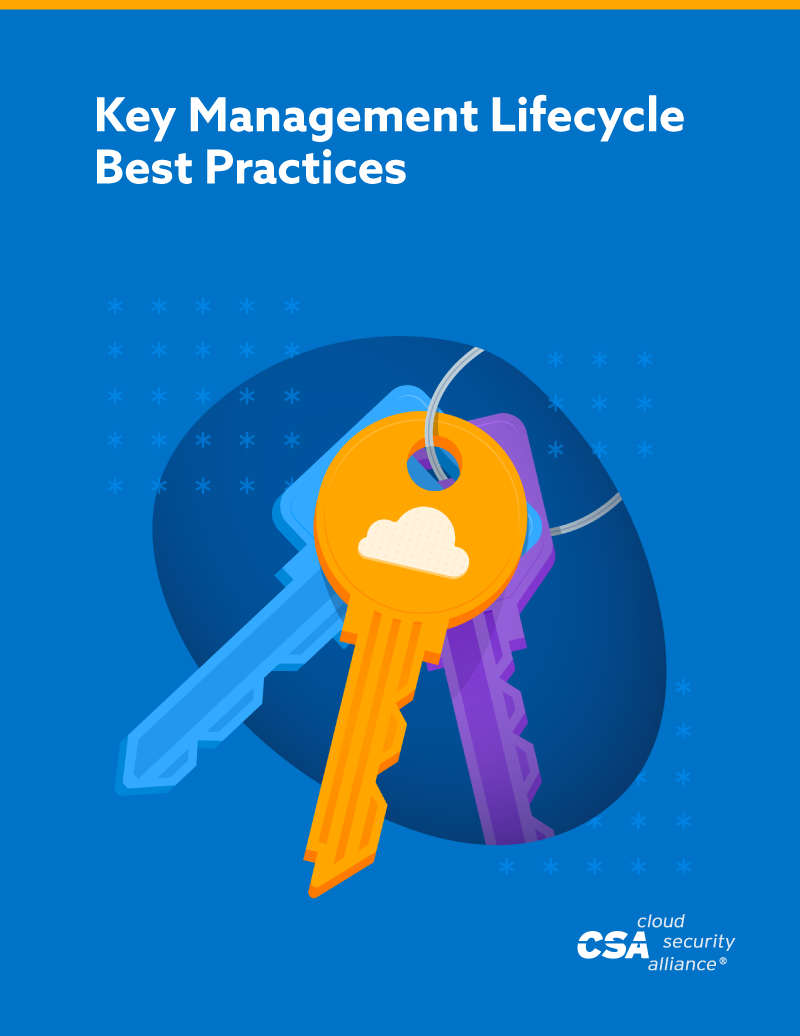Cryptographic keys are essential for securing digital assets, yet managing these keys can be challenging for organizations that run applications in the cloud. Failure to securely manage cryptographic keys may lead to security breaches and data loss. There are also various regulatory requirements and guidelines related to key management, such as PCI DSS, GDPR, HIPAA, and NIST. These requirements ensure the confidentiality, integrity, and availability of sensitive data and systems that use cryptographic keys. However, it’s not always clear to enterprise customers and service providers how to achieve compliance with these requirements.
This document serves as guidance for enterprise technologists and service providers to effectively and securely manage cryptographic keys throughout the key management lifecycle. It outlines best practices for each phase of the key management lifecycle, advising organizations on how to establish a solid foundation that protects their sensitive data, mitigates the risks of unauthorized access and data breaches, and maintains regulatory compliance.
Key Takeaways:
- Refresher on key management and encryption
- Deep dive into each phase of the key management lifecycle: Generation, Distribution, Storage, Usage, Backup and Recovery, Revocation, Rotation, and Destruction
- Best practices for planning a key management lifecycle solution
- Considerations for the deployment of a key management lifecycle solution
- Industry-specific differences to keep in mind
Download this Resource
 Best For:
Best For:
- Enterprise and security architects
- Information security specialists
- Compliance and regulatory experts
- Developers
- System and network administrators
- Operations specialists





